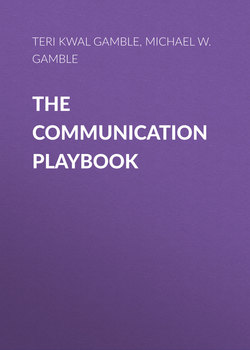Читать книгу The Communication Playbook - Teri Kwal Gamble - Страница 185
На сайте Литреса книга снята с продажи.
Bypassing: Confusing Meanings
ОглавлениеAll someone said was “Hi, Jack!” But at a suburban Detroit airport those two words precipitated a crisis. A microphone happened to be on when an individual aboard a corporate jet greeted the co-pilot. Air traffic controllers on the airport’s control tower heard the word hijack. The police, the SWAT team, and the FBI were alerted. The plane was ordered to return to the tower.14
People often think they understand each other, when, in fact, they miss each other’s meaning. This pattern of miscommunication is called bypassing, because meanings pass by each other.
There are two main kinds of bypassing.15 The first occurs when people use different words to represent the same thing but are unaware that they are both talking about the same thing. Imagine two politicians arguing vehemently over welfare policies. One holds that their city’s welfare program should be “overhauled,” whereas the other believes that “minor changes” should be made. Eventually they realize the first politician’s overhaul is actually equivalent to the second politician’s minor changes.
The second and more common type of bypassing occurs when people give different meanings to the same word or phrase. In such cases people appear to be agreeing when they substantially disagree. For example, imagine you are on a hike in the woods with a friend when your friend suddenly says, “Bear to the right.” You run to the left, hoping to avoid an encounter with what you believe is a big brown bear, when all your friend was actually doing was telling you to turn right.
Developing an awareness that bypassing can occur when you communicate is a first step in preventing it from needlessly complicating your relationships. If you believe it is possible for your listener to misunderstand you, then take the time you need to ensure that your meanings for words overlap. To avoid bypassing, you must be “person-minded” instead of “word-minded.” Remind yourself that your words may generate unpredictable or unexpected reactions in others. Trying to anticipate those reactions will help you prevent communication problems.
